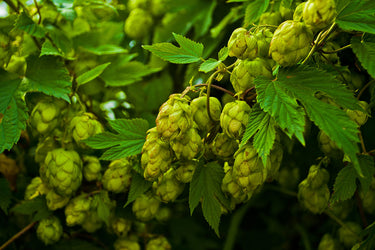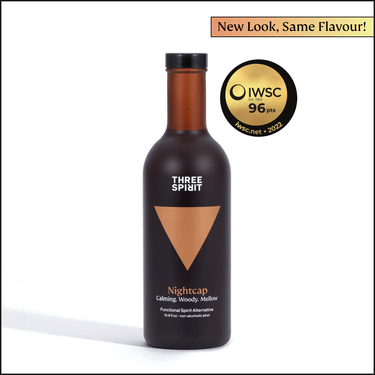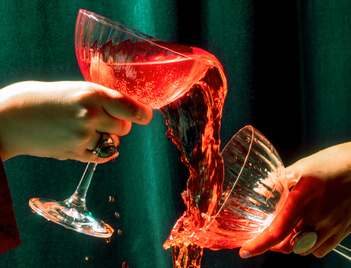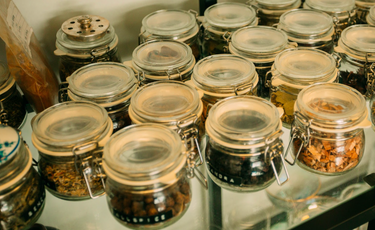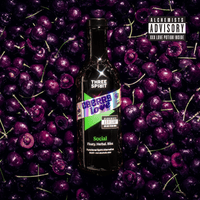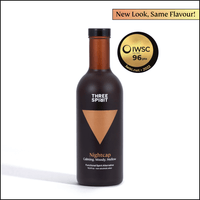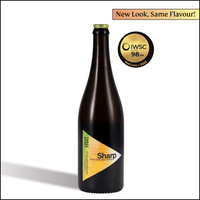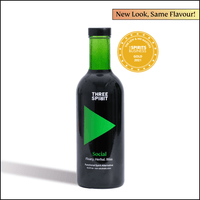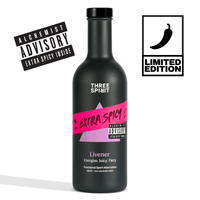At Three Spirit, scientific rigour is extremely important to us. That’s why we work with experts in the field of functional plants, anthropology, and biosciences from University College London and The University of Surrey. This mix of plant scientists help us understand our botanicals better, underpinning the scientific and cultural use of functional plants and how they would serve us best when it comes to the development of our drinks.
One of our collaborative projects (working with Dr. Shelini Surendran from Surrey University, and Prof. Michael Heinrich from UCL) was peer reviewed and published in the respected scientific journal ‘Frontiers in Nutrition’. The paper features an in-depth study of one of the key compounds within one of the primary ingredients of the Nightcap - β-myrcene. We investigated over 100 studies, to pull together and evaluate the functional properties of this fascinating terpene, as well as determining its safety and how we could best harness its attributes.
Plants containing myrcene have been used around the world for millennia. Hops is one such traditionally used botanical, abundant in β-myrcene and well known for the important role it plays in enriching the aroma of beer. As well as being beneficial as a flavour and an antimicrobial agent - myrcene has the potential to exhibit multiple effects on mood, cognition, and general wellbeing. Myrcene is suggested to contribute to the beneficial effects of cannabis, but unlike cannabis, myrcene from hops is legal everywhere and also not prohibited by any religion.
From our study, we determined that the many significant biological properties of β-myrcene coupled with its non-allergic, non-toxic and anti-cancer activities, offers the possibility of incorporating plants containing this natural compound into functional products. Research suggests that myrcene contributes to a feeling of relaxation and calm, and within the Three Spirit range, the effects of myrcene best complement the drinking occasion of the Nightcap.
As collective health consciousness rises, there is a growing trend for alcohol free functional drinks in the beverage sector. Non-alcoholic functional beverages that could offer the interesting health-related properties of β-myrcene, e.g. relaxing, stress reducing and sleep enhancing, without the negative effects of alcohol on the body and mind.
The suggested anti-anxiety and pro-relaxation effects of myrcene may also lead to the development of more functional non-alcoholic hop based products that are able to provide the perception of relaxation without the harmful effects of alcohol. Just as important, myrcene has been observed to have these effects whilst not being habit forming.
There is also a possibility that β-myrcene found within essential oils derived from plants act in synergy with other components within the essential oil to enhance health benefits. We intentionally selected lemon balm and valerian for Nightcap, botanicals that are thought to have entourage effects with the terpenes from hops. While the European Food Safety Authority (EFSA) continues to deem pure myrcene safe for use in foods in appropriate amounts, at present the American food and drug administration (FDA) does not permit the use of pure β-myrcene as an ingredient in food, however myrcene within plant oils for human consumption is generally recognised as safe by the FDA*. One shortcoming of most research to date is that very little data is available that correlates the therapeutic use of pure β-myrcene with health benefits in human participants. Overall, the evidence reviewed here points to β-myrcene being safe if consumed at levels that would ever be used for food or drinks use.
Most of the studies on health benefits of β-myrcene in this review were in animal models or cell culture. Few studies conducted in humans were found, and these included humans inhaling plant essential oil extracts containing <25% of β-myrcene, more research needs to be carried out on its effect in humans. We determined that more robust, randomised, controlled clinical trials/ intervention studies are needed using pure β-myrcene preparations to evaluate and replicate its beneficial effects in humans, and preliminary research using our raw materials is being conducted by The University of Surrey this academic year.
As well as investigating several of the individual ingredients in Nightcap, The University of Surrey is further studying the effectiveness of hops and its effects on cognition and mood and its antioxidant properties.
At Three Spirit we are always seeking to improve our drinks. As well as using plant strains high in this fabulous terpene, we will be optimising our recipes to harness other fascinating and potent plants. We will be exploring multiple lignins, polysaccharides, amino acids, polyphenols and many many other plant derived compounds.
(*The dosages applied in the NTP safety study that led to the US regulating the use of pure myrcene were up to 1,000,000 times stronger than what would ever be consumed by humans and there are also doubts of the purity of the β-myrcene used, thus casting serious doubts on the regulation’s relevance, several well respected international organisations such as the European Food Safety Authority deem myrcene in isolation to be perfectly safe in typically consumed amounts).

